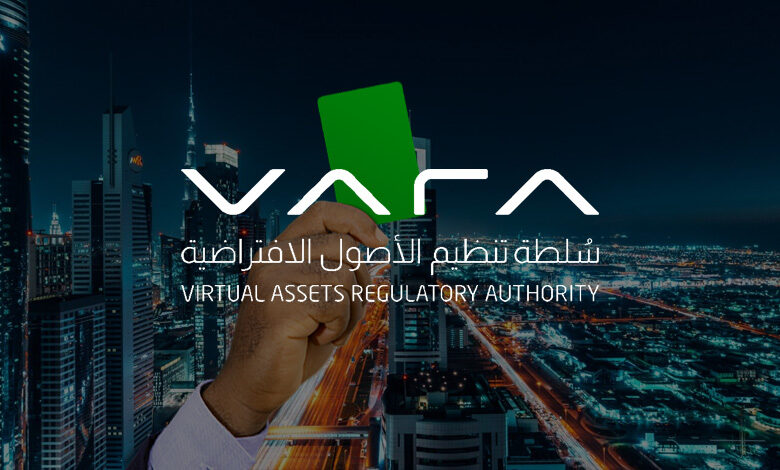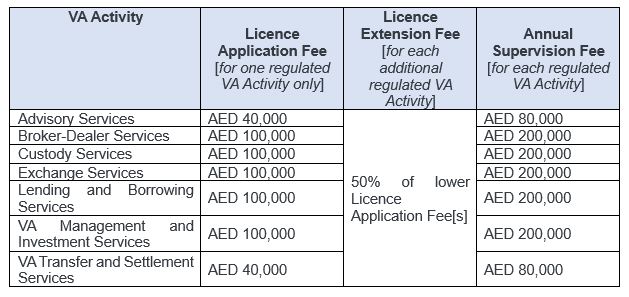Crypto License in Dubai: A Step-by-Step Guide to Receiving a VASP License in 2024

As 2024 approaches, the race to secure a coveted Virtual Asset Service Provider (VASP) license in Dubai, also known as a “crypto license,” is intensifying, with over 1000 applications already in the pipeline.
The Dubai Virtual Assets Regulatory Authority (VARA) was established in 2022 and in 2023, issued comprehensive regulations, kickstarting the licensing process. To date, 16 VASPs, including industry giants like OKX, Binance, and Crypto.com, as well as regional pioneers such as CoinMENA, have stepped into this new era, receiving their licenses, either provisionally or operationally.
If you’re gearing up to be part of Dubai’s dynamic market, now is not the time to hit the pause button. Every moment counts, and thorough preparation is essential.
This article isn’t just a guide; it’s a catalyst in your journey to navigate VARA’s comprehensive regulations and secure your place in Dubai’s burgeoning crypto market. For founders and crypto entrepreneurs eyeing a 2024 license, the time to act is now. Let’s dive into the details and set you on the path to success.
Understanding VARA’s Mandate
Established under the ambit of Dubai Law No 4 of 2022 (Dubai VA Law), VARA is tasked with the holistic regulation of virtual assets within Dubai. This autonomous body is equipped with the legal and administrative authority needed to develop investor-protective regulations, combat money laundering as per FATF guidelines, and foster Dubai as a global hub for virtual assets.
The Comprehensive Scope of VARA’s Objectives
VARA’s mandate, as outlined in Articles 5 and 6 of the Dubai VA Law, is extensive. It encompasses not only the development of investor-protective regulations but also the ambitious goal of positioning Dubai as a pivotal player in the digital economy. This involves attracting investments, nurturing companies within Dubai, and expanding financial services to include the unbanked population.
VARA’s Regulatory Jurisdiction
The Dubai VA Law and subsequent Cabinet Decisions No. 111/2022 on the Regulation of Virtual Assets and Their Service Providers and No. 112/2022 on Delegating Certain Competencies related to the Regulation of Virtual Assets delineate VARA’s jurisdiction, which spans across Dubai mainland as well as every 28+ Dubai’s Economic Free Zones, specifically excluding the Dubai International Financial Centre (DIFC) as they have their own Financial Regulator, Dubai Financial Services Authority (DFSA).
Business License Vs. Regulatory License
To clarify, it should be noted that Economic Free Zones are not authorized to issue “crypto licenses”. Economic Free Zones only facilitate the incorporation of companies through the provision of a business incorporation license. In order to engage in any business activity in the UAE, it is a legal requirement for all businesses, irrespective of whether they are regulated or non-regulated, to obtain a business license.
It is important to bear in mind that this license does not serve as a regulatory document, and if the company is engaged in any regulated activities including Virtual Asset (VA) activities, it must obtain the relevant license to operate in addition to a business license. This can sometimes lead to confusion among founders, so it is essential to understand the distinction between a business license and a regulatory license.
In-Depth Analysis of the VARA Regulations
The VARA Regulations outline 7 distinct VA Activities requiring licensure.
When applying for a VASP license, applicants must explicitly identify one or more virtual asset activities they intend to offer from the list of the below seven categories:
- VA Advisory Services;
- VA Broker-Dealer Services;
- VA Custody Services;
- VA Exchange Services;
- VA Lending and Borrowing Services;
- VA Management and Investment Services;
- VA Transfer and Settlement Services.
VARA acknowledges exemptions for professionals such as lawyers and accountants who incidentally engage in virtual asset activities as part of their professional practice.
Defining “Virtual Asset” in the VARA Context
VARA adopts a broad definition of virtual assets, encompassing digital representations of value used for exchange, payment, or investment. This includes cryptocurrencies like Bitcoin and Ether, as well as NFTs, offering a wide regulatory purview.
Virtual Assets Issuance
If a company intends to issue its own token, it is imperative to be aware of the Virtual Asset issuance rules established by the Regulator. Recently, VARA updated its Virtual Asset Issuance Rulebook and introduced new requirements for virtual asset issuance.
Currently, if a VASP intends to issue Fiat-Referenced Virtual Assets (FRVA), commonly known as stablecoins, an additional VARA License for VA Issuance is mandatory.
Furthermore, in the event that a VASP issues a token that does not constitute FRVA but possesses certain characteristics set by the Regulator, the company may be required to obtain VARA’s approval before proceeding.
As for the issuers of utility tokens, they must register their Whitepaper with VARA at least seven (7) working days before its publication and must comply with all VA Issuance rules.
VARA Licensing Steps
New VASPs follow a two-stage application process:
Stage 1: Initial Approval
- Submission of an Initial Disclosure Questionnaire (IDQ) to Dubai Economy and Tourism, if a mainland company, or a relevant Commercial Free Zone Authority, if a Free Zone Company.
- Providing additional documentation, including a business plan and details of beneficial owners and senior management.
- Payment of initial fees, which is 50% of the license application fee.
- Receipt of Initial Approval to finalize legal incorporation and complete operational setup.
It’s important to note that after receiving Initial Approval, the VASP is not yet authorized to provide VA services. They must proceed to Stage 2 of the application process.
Stage 2: VASP License
- Preparing and submitting documentation as per VARA’s guidance.
- Receiving feedback directly from VARA and potentially participating in meetings and interviews.
- Paying the remaining portion of application fees and first-year supervision fees.
- Receiving a VASP license, possibly subject to operational conditions.
Upon obtaining a VASP license, firms are required to continuously meet general licensing conditions and comply with all relevant Regulations, Rules, and Directives that may evolve over time. The specific corporate governance and legal structure requirements for VASPs are set out in the VARA Company Rulebook and will depend on the business operations conducted.
Timeline
The timeline for obtaining a VASP license in Dubai depends on the complexity of the application and the scope of activities proposed. Typically, the process can take more than 12 months. Currently, with over 1000 applications in queue, this timeline might be extended. Applicants should prepare for potential delays and plan accordingly.
Licensing Costs

Privacy Coins
Issuance of Privacy coins and all activities related to them are strictly prohibited.
Proprietary Traders
If a proprietary trader invests more than USD 250,000,000 in Virtual Assets during a one-month period, they must register with VARA. How this will be monitored, is unknown.
Practical Tips for Virtual Asset Service Providers
Conduct Thorough Research and Planning:
- Begin by consulting specialist crypto lawyers who would advise you on VARA’s regulations and the nuances of the virtual asset market in Dubai.
- Develop a comprehensive business plan that aligns with VARA’s objectives and regulatory requirements.
- Identify the specific VA activities that your business intends to engage in.
Gather and Prepare Required Documentation:
- Prepare all necessary documentation for the Initial Disclosure Questionnaire (IDQ), including detailed information about beneficial owners, senior management, and the business structure.
- Ensure financial documents, compliance policies, and operational plans are comprehensive and adhere to VARA’s standards.
Engage with Legal and Financial Experts:
- Consult with legal experts specializing in Dubai’s virtual asset regulations to navigate the application process effectively.
- Financial advisors can provide insights into capital requirements and fee structures, helping to budget for the application and operational costs.
Apply for Initial Approval and VASP License:
- Submit the IDQ along with other required documents to Dubai Economy and Tourism (DET) or the relevant Free Zone Authority.
- Pay the initial fees as required and obtain Initial Approval to finalize legal incorporation.
- Proceed to Stage 2 by preparing further documentation as per VARA’s guidelines and participate in meetings or interviews as required.
- Pay the remaining portion of application fees and first-year supervision fees to receive your VASP license.
Ensure Ongoing Compliance and Monitoring:
- Once licensed, continuously monitor and ensure compliance with VARA’s evolving regulations, rules, and directives.
- Keep abreast of changes in the virtual asset market and VARA’s regulatory landscape, adapting your business operations accordingly.
- Regularly review and update your business practices, compliance policies, and corporate governance to align with VARA’s requirements.
Plan for Timeline and Capacity:
- Given the current backlog of applications, be prepared for a potentially extended timeline, potentially exceeding 12 months.
- Engage with VARA proactively to understand the status of your application and any additional requirements.
Budget for Licensing and Operational Costs:
- Allocate sufficient financial resources for the entire licensing process, including application fees, supervision fees, and any legal or consultancy expenses.
- Plan for operational costs post-licensing, ensuring that your business model is financially sustainable under the regulatory framework.
For the crypto entrepreneurs navigating VARA’s intricate regulatory landscape is a critical endeavor. The complexity and dynamism of these regulations necessitate the guidance of experienced crypto lawyers. Legal expertise can provide invaluable assistance in achieving compliance and strategic alignment with VARA’s evolving framework.
To capitalize on Dubai’s burgeoning virtual asset market, engaging with a knowledgeable legal partner is not just advisable; it’s essential for success. For this reason, I have dedicated my career to this ever-evolving industry through NEOSLEGAL, an advisory firm empowering entrepreneurs, investors, and governments navigating the dynamic digital assets landscape since 2016, while providing expert legal counsel in Bitcoin, crypto, and Web3 for seamless regulatory compliance and success.




